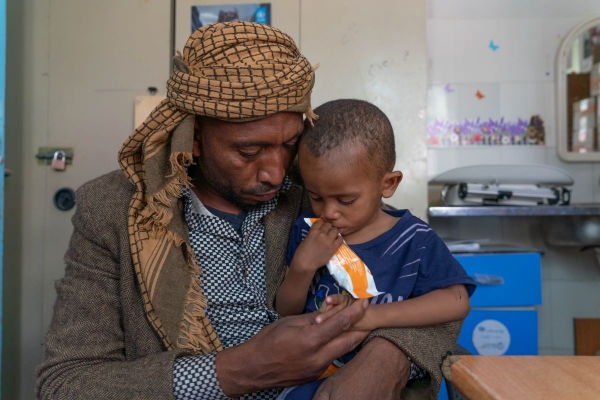Member states’ representatives met by videoconference to hear the reports of aid experts, called on to update the Security Council on conflict-induced hunger. As COVID-19 keeps spreading, more and more people are suffering from food insecurity, especially in countries facing endemic armed violence.
As stressed by Mark Lowcock, Undersecretary General for Humanitarian Affairs and Emergency Relief Coordinator, the pandemic has had a profound impact on the civilian population living in conflict zones, preventing access to livelihoods and education and exacerbating food insecurity. Persistent armed violence has also hampered humanitarian access, which was already being limited by the increasing restrictions related to COVID-19. In many conflict zones, Lowcock warns, "time is now running out". Urging the Council to act as soon as possible to protect the civilian population, he also stressed the need to work together towards peaceful political solutions, while taking concrete measures to ensure the compliance with international humanitarian law. Furthermore, he insisted on the economic impact of conflicts and the urgent need to scale up international support for the economies of those countries suffering most from food insecurity.
The Executive Director of the United Nations Food Programme (WFP), David Beasley, spoke positively about the efforts made by the international community in the first semester of 2020, but stressed the imperative "to step up and not step back" in view of next year’s challenges. Among the most affected countries, Beasley drew the Council's attention to Burkina Faso, Nigeria, Democratic Republic of the Congo, South Sudan and Yemen. "It is time to do the right thing," said Beasley, addressing his appeal to the private sector.
Qu Dongyu, Director-General of the Food and Agriculture Organization of the United Nations (FAO), dwelt on the "triple shock" suffered by several countries, which have been simultaneously hit by the coronavirus outbreak, devastating floods and swarms of desert locusts, which have crippled agricultural production in Yemen and the Horn of Africa. For the FAO director, the solution lies in stronger political will and renewed support for local agricultural production, which is closely linked to the security situation and plays a critical role on the path towards sustainable peace.
Following the experts’ briefings, the Council's members took the floor, echoing the speakers’ concerns. Many stressed the urgent need to ensure that warring parties comply with international humanitarian law, in order for aid agencies to safely deliver their assistance. Others underlined the importance of the link between humanitarian action and development cooperation, as part of long-term and sustainable interventions. Others ultimately echoed the WFP's call for the international community to increase funding for humanitarian aid.
To know more, please read:
https://www.un.org/press/en/2020/sc14308.doc.htm
Author: Ester Zangrandi







